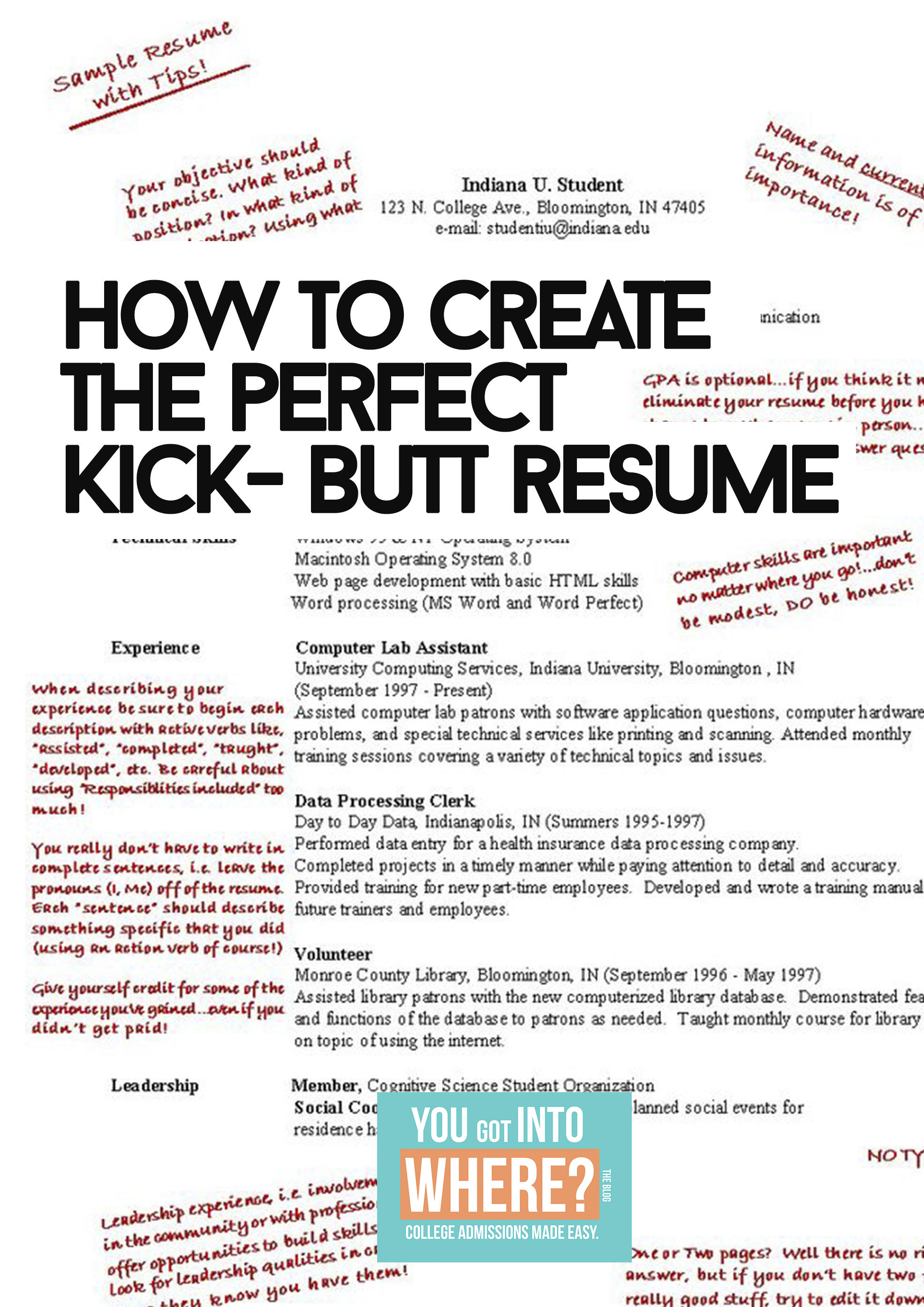What You Should Be Doing Each Year in High School to Have a Successful College Admissions Experience
/Growing up, I used to watch a lot of TV. Even though the heat didn’t work in my basement and the room gave me shivers that went to the balls of my feet, a show or two was always on my daily agenda. With age, the shows I was interested in shifted from wanting to watch the PBS Kids nightly specials to recording every Disney Channel and Nickelodeon original movie that was ever mentioned on a commercial. I was one of those that can still sing both the Camp Rock and Camp Rock 2 soundtracks by heart. Still can, actually, and still with no shame. With my introduction to Nickelodeon and Disney Channel shows, my different visions of the high school life became brightened like Christmas lights, and I was becoming more than excited to go. While I knew I would never be acting at (the fake) Hollywood Arts High School or living on a Cruise Ship, I wanted to know how I could make my years of high school as productive and entertaining as possible within a more traditional high school experience.
Because of the lack of older siblings or other family to help give me advice, I turned to YouTube. At the time, I had already learned a lot through the site, like that cats can do absolutely anything and oranges are extremely annoying when they talk. However, when I tried to do research on how my four years had to go in order to have a competitive college application, I was only able to salvage a few genuine responses, as 95% of the knowledge I gained from the videos were identical advice regurgitated with different wording, advice as common and bland as a saltine cracker. With the help of some exceptions, including YouTubers (Katherout, Annemarie Chase, and Joi Wade), I was inspired to try some things for myself, and found what worked and when I needed to start things. I worked for you to avoid the mistakes that I’ve made during high school, and a good timeline to follow to prepare yourself for the college admissions process.
Freshman year
Academics:
Academically, freshman year of high school is an adjustment period. Some people, like myself, find the adjustment easy, and others find it more difficult. However, it is a year that goes on your transcript so it’s important to start the year focused and stay focused throughout the year.
Extracurricular Activities:
Get overly involved in activities. If you have any slight interest, sign up to get alerts and go to the first couple of meetings. It’s easier to join some activities then quit them after freshman year, if you don’t like them, than to try to join clubs, sports, etc. as an upperclassman.
Testing:
This should be an area you are least concerned with. Because most of you won’t have the math skills or have built up the English language skills that are crucial to the ACT/SAT. Don’t do more than the practice tests your school may require you to take.
Miscellaneous:
- One of the best ways of getting through the stresses of high school and the college admission process is having friends or a community that will support you through both your successes and failures. Freshman year is a great time to establish your “crew” that will be there for you. While these people may not stay with you throughout your entire high school journey, at least having a past connection is a great support mechanism to make the high school experience both fun and rewarding.
- Set both short and long-term goals for yourself academically, within your extra-curricular activities and socially. These goals can range from making the varsity lacrosse team, to getting a 3.8 unweighted GPA, to getting into your state school. Writing these goals down and keeping them somewhere where you’ll read them often can help you maintain your focus throughout the school year.
Sophomore Year
Academics:
Keep grinding. Stay focused. If you slipped into bad habits freshman year or were not happy with your academic performance, don’t dwell on those mistakes. Use them as motivation and a learning experience for this year and going forward.
Testing:
By the summer, talk to your parents/guardians and determine how you’ll be preparing for your standardized tests (the ACT/SAT), whether that’s with prep courses, private tutors, or self-studying, in order to get ahead of your peers. If you think prep courses or private tutoring are paths you’ll need to go on, it may be a good thing to pursue during the summer as you have more free time to do the practice.
Extracurricular Activities:
By sophomore year, continue to search for the extracurricular activities you really enjoy. There is no shame in quitting or joining activities this year. If you want to have the possibility to gain leadership in one of these activities, make sure to attend as many of the events/practices/meetings for the activity, in order to show dedication to the advisor or coach.
Miscellaneous:
If you’re interested in doing some more unique things during college, like playing a sport, joining an ROTC program (which you can read about here http://www.goarmy.com/rotc.html) or studying the performing arts, talk to your guidance counselor and see what sort of preparations you’ll have to do before-hand. The last thing you want is to find out when you’re applying that these programs aren’t available to you because you waited too long.
Junior Year
Junior year is the year you’ve got to get your head in the game. This is the most looked at year by admissions committees on a college application, so you need to.
If this year is getting too stressful, make short-term goals. Sometimes it’s easier to look at getting through a stressful week than a well-known stressful week.
Academics:
- For those of you who decide to apply to colleges at the early deadlines in November, the end of this year is the last impression colleges will have of you when you apply, so you need to push yourself academically. Try to do the absolute best that you can academically.
- Since you most likely got all of your graduation requirements done with, this is a year to establish a schedule in areas of interest. For example, if you want to be pre-med, it would be beneficial to double up on science classes, to show your dedication to your major to your colleges of choice.
Testing:
Try to get all of your testing out of the way as early into junior year as possible. Start doing prep and taking actual exams by December to give an adequate amount of time to improve your score. If you believe you are going to be applying to a college that requires or recommends SAT subject tests, make sure to plan for those as well.
Extracurricular Activities:
- If by this point you have found a few activities that you really enjoy, try to dedicate a bunch of time to them. If you love playing the trumpet, you can play in a myriad of bands, mentor beginner trumpet players, and go to intensives in the summer to help you improve your craft. This sort of strategy allows you not only for tremendous improvement in what you do, but shows colleges your dedication to the activities you involve yourself with.
- Look into possibly pursuing leadership in the things that you’ve been involved in. No matter how much you doubt yourself about getting a leadership position, just do it. While one of your volleyball teammates with an ego bigger than the Pacific thought they were guaranteed being captain BS’ their speech and is basically not going to be considered, you’ll wish that you had written a speech yourself.
Miscellaneous:
- If affordable, try to visit some of the colleges that you are interested in. If the visit list is still limited, maybe take a week and go to a couple of concentrated areas with lots of colleges, such as Boston or LA, because there are a variety of different colleges that you can visit in order to get a feel for the type of environment that you would like in a particular college.
- Stay sane and socialize. Go to a couple of football games. Go to Homecoming, prom, girls ask guys dance. Go to a party, even if you have a lot of homework due on Monday. It will keep your mind clear and sane. You’d be surprised by how much screaming the lyrics of your favorite song can take you out of the stresses of the world and into a happy place.
Senior Year
Academics:
- If you end up applying to any regular decision deadlines, you will have one-two marking period grades that will be sent to colleges. Just like junior year, it’s another time to impress colleges and show another strong academic record.
- Remember that even after a college accepts you, they can take back their acceptance if your academic performance is not where they would like it to be, so try to stay focused enough where you can achieve grades of a level that is near your highest performance in high school.
Testing:
If your standardized testing is not already completed, work on getting it completed in the September and October dates.
Extracurricular Activities:
Enjoy being on your sports teams, orchestras, and unique clubs while you can. If you aren’t interested in pursuing these at a collegiate level, this year will be the last that you’ll be able to experience them. Make that last year count.
Miscellaneous:
- Make sure to dedicate time nightly for your college applications. You don’t want to fall behind on these and not have them at the quality that you like.
- Visit the colleges that you got accepted to if possible, to help make your final decision of where you’ll be attending college easier.
- Have fun! Treat yourself for the hard work put in you put in the past 3 ½ years.













